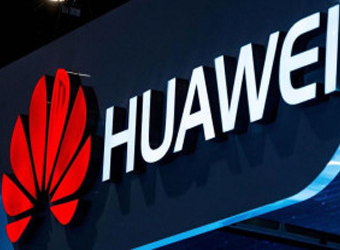Under the slogan of “The Road to the Smart City”, President Abdel Fattah El Sisi toured Huawei pavilion during the opening of Cairo ICT 2017 conference-cum- exhibition. The president was accompanied by Minister of Communications and Information Technology Yasser el-Kadi along with Huawei Egypt CEO Mr. Terry Liu.
Using collaborative ICT such as IoT, Cloud Computing, Big Data, and Artificial Intelligence (AI), Huawei teams up with partners to develop more efficient, smart, and innovative solutions for industrial digital transformation. 
Huawei Technologies Co. Ltd. a Chinese multination networking and telecommunications equipment and Services Company, launched its latest Smart City Intelligent Operation Centre (IOC) Solution at the Smart City Expo World Congress 2017 (SCEWC). The solution builds the “city brain”, a converged management center, to share data and services.
City management is evolving from traditional vertical administration modes to a new mode that centers on convergence and sharing. IOC plays a core role in converged Smart City management. The IOC solution that Huawei launched this time leveraged new technologies, such as cloud computing, IoT, ultra-broadband, Big Data, and artificial intelligence, to close the monitoring-alarm-decision-execution loop.
The IOC uses IoT sensors to collect data from the physical world and sends data to the digital world for analysis. City management personnel make decisions based on the analysis results, bringing data back to the physical world in smart actions to close the loop.
The city dashboard displays the overall status of city operations, including real-time details of specific fields and areas. For example, the IOC displays the distribution of water, electric power, heat, and gas resources in a region, allowing maintenance personnel to monitor the status of transportation pipelines and intersections.
Big Data analysis supports smart decision-making. The supervision department detects risky enterprises using enterprise profiles and evaluation models. The economic department convenes quarterly meetings to analyze economic operation, discussing all macro and micro indexes.
The water resource department analyzes the real-time weather data, information collected from IoT sensors, and historical records to specify flooding risks. The municipal government uses population movement date to improve city planning, and event management processes to fairly assess employee performance.
The gas company utilizes IoT sensors to monitor dangerous places like gas pipelines, Big Data to detect abnormities, and the unified communications system to send warning messages, preventing incidents from happening. IoC enables linked command, collaborative dispatch, and converged management across departments.
In addition, Huawei provides comprehensive information and communication technology support to city managers and is also committed to planning, building and investing in smart cities in the long run with the aim of offering and providing high-quality services faster, more efficiently and with fewer resources.
Huawei’s Smart City solutions are now serving more than 120 cities in over 40 countries.
Huawei benefits from its platform of the Internet of things (IoT), the operating system LiteOS, the advanced technologies of NB IoT, eLTE- IoT and Artificial Intelligence (AI) to build widespread and efficient sensor systems.
Smart applications help improve city management efficiency, public security and people’s livelihood, through providing smart garbage bins, smart street lighting, smart irrigation, smart construction, and smart health care.
On the sidelines of the Cairo ICT 2017 exhibition, and part of constant investment in the Egyptian market, Huawei had officially launched on Monday its North Africa the OpenLab, which was set up in Cairo to provide the open joint innovation platform for all industry partners and support Smart City Evolution and Innovation. The open laboratory is first in the North Africa region among 13 labs worldwide offering an open end-to-end one-stop ICT Infrastructure platform where partners can test and verify their Smart City solutions in actual network environment, leverage research, marketing and solutions delivery, and experience best practices and solutions for Smart Cities. Huawei is committed to building innovative platforms for partners to constantly evolve their technologies and the company continuously invests in the development of a thriving ecosystem.
Attending the ceremony were the Chinese ambassador to Egypt, H.E. SONG Aiguo, Mostafa Abdel Wahed, the acting CEO of the National Telecommunications Regulatory Authority (NTRA) , Essam el-Sagheer, Chairman of the National Post Authority, Amr Alouba, President of ECG Co. , Hossam Osman, Vice President Information Technology Industry Development Agency (ITIDA), Abdoulkarim Soumaila| Secretary General of African Telecommunications Union (ATU), and Didier Nkurikiyimfura,
In addition to, The head of Technology and Innovation at Smart Africa and Terry Liu, CEO of Huawei Egypt, Professor Samir Shaheen – Chairman of IEEE Egypt, Ian Martin Ravenscroft – president for Huawei Mobile Money, Mr. XU GUOYU- Vice President of Huawei Industry Marketing & Solutions, Ni Zheng – President of Huawei Northern Africa Region Enterprise Business group, SU Jingzhao, CTO of Huawei Industry Solution, Gongdaoyu – Vice president of Huawei Consumer MENA Huawei in co-operation with its partners worldwide are jointly innovating to build and design sustainable ecosystems so as to provide locally appropriate solutions to the Smart City.
Furthermore, open labs provide an integrated platform for ICTs through which partners can test and verify their smart solutions in the virtual network environment.


